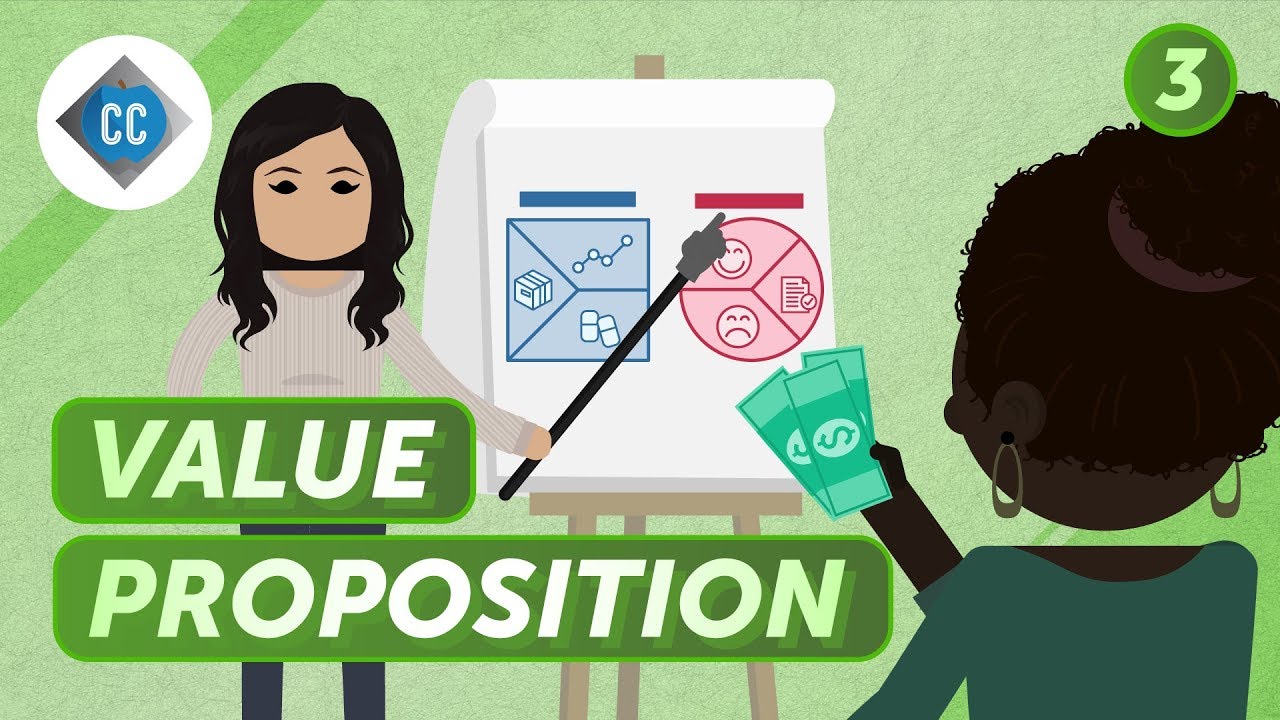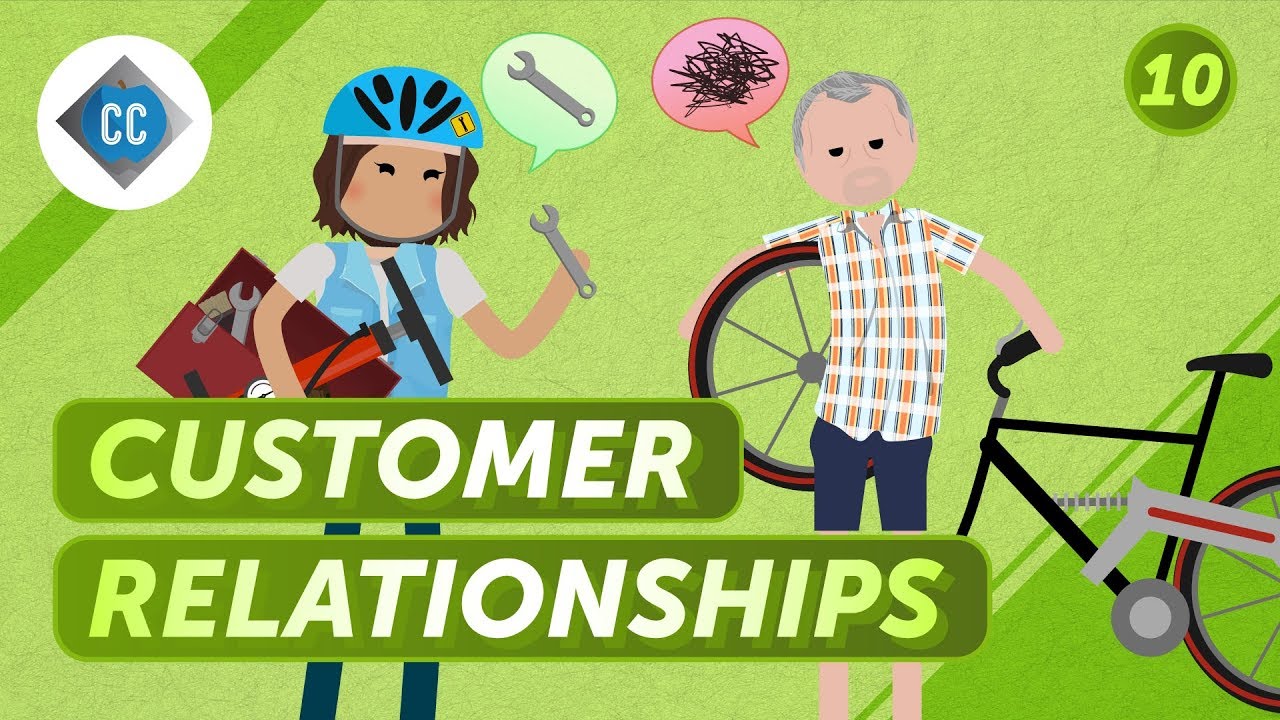Starting a businessis an exhilarating and transformative experience that demands careful consideration and planning. In this article, we will explore what must an entrepreneur assume when starting a business. Aspiring entrepreneurs must be prepared to face a range of challenges and uncertainties along their entrepreneurial journey. By assuming certain key factors, entrepreneurs can set realistic expectations and make informed decisions.
What Is An Entrepreneur Or Entrepreneurship?

Entrepreneur vs Entrepreneurship | Entrepreneurship: Concept and Functions | Class 11 | CBSE
An entrepreneur is an individual who identifies a businessopportunity and takes on the financial and personal risks associated with starting and running a business. Entrepreneurs are driven by a desire to innovate, create value, and make a positive impact in the marketplace.
Entrepreneurship, on the other hand, refers to the process of starting and managing a new business venture. It involves various activities such as identifying business opportunities, developing a business plan, securing funding, assembling resources, managing operations, and assuming the risks associated with running a business. Entrepreneurship is characterized by traits such as creativity, resilience, adaptability, and a willingness to take calculated risks.
Entrepreneurs play a critical role in driving economic growth and innovation by introducing new products, services, and business models. They often bring fresh perspectives and solutions to existing challenges and can create employment opportunities and contribute to the overall development of societies.
What Must An Entrepreneur Do To Become An Effective?

How to be an Entrepreneur
Becoming an effective entrepreneur requires a combination of skills, mindset, and actions. Here are some key steps an entrepreneur can take to enhance their effectiveness:
- Set Clear Goals -Define specific, measurable, achievable, relevant, and time-bound (SMART) goals for your business. Clear goals provide a sense of direction and help prioritize tasks and decision-making.
- Continuous Learning -Commit to lifelong learning and self-improvement. Stay updated on industry trends, technological advancements, and best practices. Seek knowledge through books, courses, workshops, and networking with experts in your field.
- Develop a Strong Network -Build relationships with mentors, industry peers, and experts who can provide guidance, support, and valuable connections. Actively participate in networking events, join professional organizations, and engage with online communities related to your industry.
- Build a Strong Team -Surround yourself with talented individuals who complement your skills and share your vision. Recruit and retain top talent, delegate responsibilities effectively, and foster a positive and collaborative work environment.
- Embrace Adaptability -Be open to change and adapt to evolving market conditions. Stay attuned to customer feedback, industry trends, and competitor actions. Adjust your strategies and offerings as needed to meet customer demands and stay ahead of the curve.
- Effective Time Management -Prioritize tasks, delegate when necessary, and manage your time efficiently. Set clear boundaries, avoid multitasking, and focus on high-value activities that drive business growth.
- Risk Management -Identify and assess potential risks associated with your business. Develop contingency plans and strategies to mitigate risks. Seek advice from experts and consider obtaining appropriate insurance coverage to protect your business.
- Innovate and Stay Creative -Foster a culture of innovation and encourage creative thinking within your business. Continuously seek new ways to improve products, services, and processes. Embrace experimentation and learn from both successes and failures.
- Effective Communication -Develop strong communication skills to convey your vision, goals, and expectations clearly to your team, stakeholders, and customers. Listen actively, provide constructive feedback, and foster open and transparent communication within your organization.
- Persistence and Resilience -Entrepreneurship can be challenging, and setbacks are inevitable. Develop resilience, bounce back from failures, and learn from them. Stay persistent, stay motivated, and maintain a positive mindset even during tough times.
Remember that becoming an effective entrepreneur is a journey that requires continuous improvement and adaptation. By adopting these practices and continually refining your skills, you can enhance your effectiveness and increase your chances of entrepreneurial success.
What Must An Entrepreneur Assume When Starting A Business? 10 Best Things

What Must An Entrepreneur Assume When Starting A Business?
When starting a business, there are several key assumptions that entrepreneurs should consider. Here are the 10 best things that an entrepreneur must assume when embarking on their entrepreneurial journey:
Assume Responsibility
Assuming responsibility is a fundamental mindset that every entrepreneur must adopt when starting a business. Here are the key aspects of assuming responsibility as an entrepreneur:
- Ownership of Decisions -Entrepreneurs must take ownership of the decisions they make for their business. They understand that their choices have consequences and are willing to bear the responsibility for the outcomes.
- Accountability -Entrepreneurs hold themselves accountable for the success or failure of their business. They recognize that their actions, behaviors, and work ethic directly impact the results they achieve.
- Resource Management -Entrepreneurs assume responsibility for effectively managing the resources at their disposal. This includes financial resources, human capital, time, and other assets. They make strategic decisions to optimize resource allocation and maximize the potential for success.
- Adaptability and Learning -Entrepreneurs take responsibility for their own growth and development. They continuously seek opportunities to learn, acquire new skills, and stay updated on industry trends. They understand that their ability to adapt and evolve is critical for the long-term success of their business.
- Building a Strong Team -Entrepreneurs assume the responsibility of building and leading a strong team. They understand the importance of hiring the right individuals, fostering a positive work environment, and empowering their team members to contribute to the business's success.
Embrace Uncertainty
Embracing uncertainty is a crucial mindset that entrepreneurs must adopt when starting a business. Here are the key aspects of embracing uncertainty as an entrepreneur:
- Accepting the Unknown -Entrepreneurs recognize that starting a business involves venturing into uncharted territory. They acknowledge that there will be aspects of their journey that are uncertain and unpredictable.
- Adapting to Change -Entrepreneurs understand that the business landscape is dynamic and constantly evolving. They embrace the need to adapt their strategies, products, and services to meet changing market conditions and customer demands.
- Risk-Taking -Entrepreneurs are comfortable with taking calculated risks. They understand that risk and uncertainty are inherent in entrepreneurship and that stepping outside their comfort zones is necessary for growth and success.
- Learning from Failure -Entrepreneurs view failure as an opportunity for learning and growth. They understand that not every decision or initiative will yield the desired results. Instead of being discouraged by failure, they use it as a stepping stone toward improvement and innovation.
- Iterative Approach -Entrepreneurs adopt an iterative approach to their business. They recognize that their initial ideas and assumptions may need to be refined or changed based on feedback, market response, and emerging trends. They are willing to pivot and adjust their strategies as new information becomes available.
Value Proposition

Value Proposition and Customer Segments: Crash Course Business - Entrepreneurship #3
The value proposition is a critical aspect of any business and refers to the unique value that a product, service, or solution provides to its customers. It is the compelling reason why customers should choose a particular offering over alternatives in the market. Here are the key points to consider when developing a strong value proposition:
- Customer-Centric Focus -A strong value proposition starts by understanding the needs, desires, and pain points of your target customers. Identify the specific problems or challenges they face and how your offering addresses those issues.
- Differentiation -Your value proposition should clearly articulate how your product or service stands out from competitors. Highlight the unique features, benefits, or advantages that set your offering apart and make it compelling to customers.
- Clear and Concise Messaging -Your value proposition should be communicated in a clear, concise, and easily understandable manner. Use simple language that resonates with your target audience and clearly communicates the value they will receive.
- Quantifiable Benefits -Outline the specific benefits and outcomes that customers can expect from using your product or service. These benefits could include cost savings, increased efficiency, improved performance, time savings, enhanced convenience, or any other tangible results that your customers value.
- Addressing Objections -Anticipate and address potential objections or concerns that customers may have. Demonstrate how your offering overcomes those objections and provides a compelling solution to their needs.
Customer Understanding

How to Understand Your Customer So Well Your Product Will Sell Itself
Customer understanding is a critical aspect of building a successful business. By gaining deep insights into your target customers, their needs, preferences, and behaviors, you can create products, services, and experiences that truly resonate with them. Here are key points to consider when developing a strong understanding of your customers:
- Market Research -Conduct thorough market research to gather information about your target market. This includes demographic data, psychographic insights, market trends, and competitive analysis. Use tools like surveys, focus groups, and interviews to gather qualitative and quantitative data.
- Segmentation -Divide your target market into distinct customer segments based on common characteristics, behaviors, and needs. This helps you tailor your offerings and marketing strategies to specific customer groups, increasing their relevance and effectiveness.
- Customer Personas -Develop detailed customer personas that represent your ideal customers. These personas are fictional representations of your target customers, including their demographics, motivations, challenges, goals, and preferences. Personas help you understand your customers on a deeper level and guide your decision-making processes.
- Customer Journey Mapping -Map out the customer journey to understand the various touchpoints and interactions customers have with your business. Identify key stages, pain points, and opportunities for engagement. This helps you optimize the customer experience and identify areas for improvement.
- Customer Feedback -Actively seek feedback from your customers through surveys, interviews, or online reviews. Listen to their opinions, concerns, and suggestions. This feedback provides valuable insights into their experiences, satisfaction levels, and areas where you can make enhancements.
Continuous Learning
Continuous learning is a key mindset and practice that entrepreneurs should embrace to stay relevant, adapt to changing market conditions, and foster personal and professional growth. Here are the reasons why continuous learning is crucial for entrepreneurs:
- Adaptation to Change -The business landscape is constantly evolving, driven by technological advancements, market shifts, and changing consumer preferences. Continuous learning allows entrepreneurs to stay updated on industry trends, emerging technologies, and evolving best practices, enabling them to adapt their strategies and business models accordingly.
- Innovation and Creativity -Learning fosters innovation and creativity by exposing entrepreneurs to new ideas, perspectives, and approaches. It sparks curiosity, encourages out-of-the-box thinking, and inspires the development of innovative solutions and business concepts.
- Expanding Knowledge and Skills -Continuous learning enables entrepreneurs to expand their knowledge and skills in various areas of business management, such as marketing, finance, leadership, and operations. This broader skill set equips entrepreneurs with the versatility and expertise needed to tackle diverse challenges and seize new opportunities.
- Personal Growth and Development -Learning goes beyond professional growth; it also contributes to personal development. Entrepreneurs can enhance their communication skills, leadership abilities, emotional intelligence, and resilience through continuous learning, enabling them to navigate the ups and downs of entrepreneurship more effectively.
- Building a Network and Collaboration -Engaging in learning opportunities allows entrepreneurs to connect with like-minded individuals, industry experts, and potential mentors or collaborators. Building a strong network enhances knowledge sharing, fosters collaborations, and opens doors to new opportunities for partnerships and business growth.
Financial Management

Don't Spend Money Until You're Making Money - The Key Financial Rule for Entrepreneurs
Financial management is a crucial aspect of running a successful business. Effective financial management involves planning, monitoring, and optimizing your company's financial resources to ensure sustainable growth and profitability. Here are key points to consider when it comes to financial management:
- Budgeting and Forecasting -Develop a comprehensive budget and financial forecast that outlines your projected revenues, expenses, and cash flow. This allows you to set financial targets, track performance, and make informed decisions about resource allocation.
- Cash Flow Management -Monitor and manage your cash flow to ensure sufficient funds are available to cover day-to-day operations, expenses, and unforeseen circumstances. Implement strategies to optimize cash flow, such as negotiating favorable payment terms with suppliers or improving your accounts receivable process.
- Profitability Analysis -Regularly assess your profitability by analyzing your revenue streams, costs, and profit margins. Identify areas where you can increase revenue or reduce expenses to improve your bottom line.
- Financial Controls -Establish internal controls to safeguard your company's assets, prevent fraud, and ensure accurate financial reporting. This includes implementing processes for bookkeeping, financial statement preparation, and periodic audits.
- Risk Management -Identify and mitigate financial risks that could impact your business. This includes managing credit risk, foreign exchange risk, interest rate risk, and other factors that may affect your financial stability.
Effective Marketing
Effective marketing is crucial for the success of any business. It involves identifying and understanding your target audience, creating compelling messaging and visuals, selecting appropriate marketing channels, and continuously evaluating and optimizing your marketing efforts. Here are key points to consider when it comes to effective marketing:
- Know Your Target Audience -Clearly define your target audience and develop a deep understanding of their demographics, behaviors, preferences, and needs. This helps you tailor your marketing messages and strategies to resonate with your ideal customers.
- Craft a Strong Value Proposition -Clearly articulate the unique value your product or service offers to customers. Highlight the benefits and advantages they will experience by choosing your offering over competitors. Your value proposition should be communicated consistently across all marketing channels.
- Build a Compelling Brand -Develop a strong and consistent brand identity that represents your business and resonates with your target audience. This includes your brand name, logo, colors, tagline, and overall brand personality. Consistency in brandinghelps build recognition and trust.
- Create Engaging Content-Develop high-quality and relevant content that educates, entertains, or solves problems for your target audience. This can include blog posts, articles, videos, infographics, podcasts, and social mediaposts. Engaging content attracts and retains the attention of your audience, positioning you as a trusted authority in your industry.
- Utilize Multiple Marketing Channels -Identify the marketing channels that are most effective for reaching your target audience. This can include digital channels such as social media, search enginemarketing, email marketing, and content marketing, as well as traditional channels like print advertising, radio, or TV. Use a mix of channels to maximize your reach and engagement.
Building Relationships

How to Build Customer Relationships: Crash Course Entrepreneurship #10
Building strong and meaningful relationships is essential for the success of any business. When you cultivate positive relationships with customers, employees, suppliers, and other stakeholders, you create a foundation of trust, loyalty, and collaboration. Here are key points to consider when it comes to building relationships:
- Customer-Centric Approach -Put your customers at the center of your business. Understand their needs, preferences, and pain points. Provide exceptional customer service, listen to their feedback, and go above and beyond to exceed their expectations. Building strong relationships with customers fosters loyalty, repeat business, and positive word-of-mouth referrals.
- Effective Communication -Communication is key to building relationships. Be clear, transparent, and responsive in your interactions with stakeholders. Listen actively, show empathy, and seek to understand their perspectives. Use various communication channels, such as in-person meetings, phone calls, emails, and social media, to connect and engage with your stakeholders effectively.
- Trust and Integrity -Establish trust by acting with integrity and maintaining ethical business practices. Be reliable, deliver on your promises, and treat others with respect. Trust forms the foundation of strong relationships and enables effective collaboration and long-term partnerships.
- Networking and Relationship Building -Actively participate in industry events, conferences, and networking opportunities to meet new people and expand your professional network. Build connections with peers, potential customers, and influencersin your industry. Nurture these relationships by staying in touch, offering support, and seeking opportunities for collaboration.
- Employee Engagement -Foster positive relationships with your employees by creating a supportive and inclusive work environment. Recognize and appreciate their contributions, provide opportunities for growth and development, and promote a healthy work-life balance. Engaged and motivated employees are more likely to deliver exceptional customer service and contribute to the success of your business.
Resilience And Perseverance
Resilience and perseverance are critical qualities for entrepreneurs to navigate the challenges and setbacks that come with starting and running a business. Here's a closer look at the importance of resilience and perseverance:
- Navigating Setbacks -Resilience is the ability to bounce back from setbacks, failures, or obstacles. As an entrepreneur, you are likely to face various challenges, such as financial difficulties, market fluctuations, or unexpected hurdles. Resilience enables you to maintain a positive mindset, learn from failures, and find alternative solutions to overcome obstacles.
- Adapting to Change -The business landscape is constantly evolving, and adaptability is essential for success. Resilience allows you to embrace change and pivot your business strategy when necessary. It helps you remain agile and open to new opportunities, even in the face of uncertainty or unexpected market shifts.
- Persevering in the Face of Failure -Perseverance is the determination to continue pursuing your goals despite setbacks and failures. It involves a steadfast commitment to your vision and the willingness to put in the necessary effort and time to achieve success. Perseverance enables you to stay motivated, learn from mistakes, and keep moving forward even when things get tough.
- Overcoming Self-Doubt -Entrepreneurship can be a challenging journey, and self-doubt is common along the way. Resilience and perseverance help you overcome self-doubt by reminding you of your capabilities, strengths, and past achievements. They empower you to push through self-limiting beliefs and take calculated risks to propel your business forward.
- Learning from Failure -Failure is often an inevitable part of the entrepreneurial journey. However, resilient entrepreneurs view failure as an opportunity for growth and learning. They analyze failures, identify lessons, and use that knowledge to improve their strategies, products, or processes. Perseverance allows entrepreneurs to dust themselves off, learn from failures, and keep moving forward with renewed determination.
Work-Life Balance

Work-Life Balance- Is it Possible for Entrepreneurs?
Work-life balance refers to the equilibrium between one's professional responsibilities and personal life. It involves effectively managing time, energy, and attention to fulfill both work-related obligations and personal commitments. Achieving a healthy work-life balance is crucial for overall well-being, productivity, and satisfaction. Here are some key points to consider regarding work-life balance:
- Setting Priorities -Clarify your priorities and identify what truly matters to you in both your work and personal life. Determine your core values and use them as a guide to make decisions and allocate your time and energy accordingly.
- Establishing Boundaries -Set clear boundaries between work and personal life. Create dedicated time for personal activities, hobbies, and relationships. Avoid allowing work-related tasks or distractions to encroach upon your personal time. Similarly, establish boundaries during the personal time to protect your work-free moments.
- Effective Time Management -Develop strong time management skills to optimize your productivity and allocate time efficiently. Prioritize tasks, set realistic goals, and utilize tools or techniques such as time blocking, to-do lists, and delegation to manage your workload effectively. This enables you to complete tasks within work hours, minimizing the need for excessive overtime.
- Maintaining Self-Care -Take care of your physical, mental, and emotional well-being. Prioritize self-care activities, such as exercise, proper nutrition, quality sleep, and relaxation techniques. Make time for activities that recharge and rejuvenate you, reducing stress and promoting overall well-being.
- Flexible Work Arrangements -Explore flexible work arrangements, if possible, such as remote work, flexible hours, or compressed workweeks. These arrangements can provide more control over your schedule and allow you to better integrate work and personal responsibilities.
People Also Ask
What Is The Role Of An Entrepreneur?
The role of an entrepreneur is to identify business opportunities, develop innovative ideas, and create a vision for a successful venture. Entrepreneurs take on the responsibility of organizing and managing resources, taking calculated risks, and driving the growth and success of their businesses.
What Skills Do Entrepreneurs Need?
- Strong leadership and communication abilities
- Problem-solving and critical-thinking skills
- Creativity and innovation
- Adaptability and resilience
- Financial management and business acumen
- Networking and relationship-building skills
How Do Entrepreneurs Manage Risk?
- Conducting thorough market research to understand potential risks and opportunities
- Developing a comprehensive business plan and financial projections
- Diversifying their revenue streams and customer base
- Having contingency plans for unexpected setbacks
- Obtaining appropriate insurance coverage
- Seeking advice from mentors or consultants with expertise in risk management
Conclusion
Embarking on the path of entrepreneurship requires a mindset that embraces risk, hard work, adaptability, and continuous learning. Entrepreneurs must assume the responsibility of navigating through uncertain terrain while staying focused on their goals. By recognizing the financial constraints, understanding market dynamics, building strong networks, and fueling their ventures with passion and purpose, entrepreneurs can increase their chances of success.
Starting a business is not for the faint-hearted, but for those who are willing to assume the risks and embrace the rewards. By embodying these assumptions, entrepreneurs can embark on an exciting and transformative journey that has the potential to create a lasting impact on their lives and the world around them.